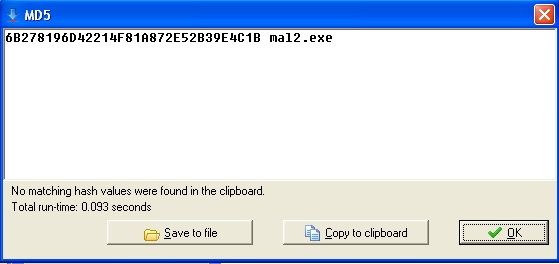

You should be able to view the name of each file along with OK. Then run command: sha1sum -c checksumpfilename. For the two files above, you can issues the command below to redirect generated hash values into a text file for later use: md5sum groupslist.txt groups.csv > myfiles.md5 To check that the files have not been modified since you created the checksum, run the next command.

Open the terminal application on Linux or Unix.
MD5 HASH CALCULATOR USING BASH FOR FILES OR FOLDERS LINUX DOWNLOAD
That's why DirHash implements a recursive lexicographical ordering for files and directories in order to ensure a unique representation of the directory content. The procedure to check your SHA-1 is as follows: Download the file, including the SHA1 checksum file. Last remark: directory fingerprinting is very useful in many practical cases and I don't see why one would calculate the hash of the directory if there is no guarantee that the value is not uniquely tide to the content. This boost performance on Windows 64-bit machines significantly. I decided to put it in a bash script and run it as an init container in the services pod. Im triyng to make a Bash Script that checks (recursively) the MD5 from all the files in a certain directory and compare them against some other check that. Now, a certain service needs to download this file locally on startup, and do a hash check to verify its integrity. I also now make available a 64-bit of DirHash which can be obtained at The -put-md5 option tells azcopy to compute the MD5 hash of the file and put it base64 representation in the Content-MD5 property of the blob. There can be several "-exclude" switches in the command line in order to exclude several name patterns. For example, to exclude the directory "temp" and all its content from the computation, you can specify " -exclude *temp". For example, use " -exclude *.log" to exclude. The syntax is "-exclude pattern" where pattern is in the form *.extensionName or *suffix. I have implemented the "-exclude" switch proposed by msfan63.


 0 kommentar(er)
0 kommentar(er)
